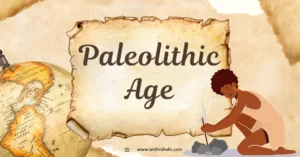AI Answer Evaluation Platform Live Now. Try Free Answer Evaluation Now
Law and Justice in Simple Societies
Law and justice in simple societies can be understood in somewhat different ways compared to their understanding in complex, modern societies. These societies might be small, rural, or tribal communities without a formalized legal system. However, this does not mean they lack mechanisms to regulate behavior and ensure fairness.

“Law” in such societies usually refers to a set of customs, traditions, or unwritten rules that dictate acceptable and unacceptable behavior within the society. These laws often emerge from the community’s collective wisdom and shared experiences and are enforced not through a formal judiciary or police force but through social pressure, community leadership, or spiritual or religious beliefs. The law is an integral part of their culture, influencing all aspects of life from inter-personal relationships to resource distribution.
On the other hand, “justice” in the context of simple societies often involves a balance of rights, responsibilities, and fairness. It is a community-oriented concept that is primarily concerned with maintaining social harmony and preventing disruption. Justice is often achieved through mediation, negotiation, or consensus, rather than through adversarial legal proceedings. It also tends to emphasize restitution or restoration of social relationships, rather than punishment for its own sake.
However, it’s important to note that every society, simple or complex, has its unique cultural lens through which it views concepts like law and justice. So, the meanings of these terms can greatly vary from one society to another.
The Role of Custom in Simple Societies
The Role of Custom in Regulating Social Behavior
In simple societies, customs play a fundamental role in regulating social behavior.
- Social Regulation: Customs set the standards for individual and group behavior, acting as informal laws to maintain societal order. They define the norms, expectations, and the general ‘way of life’ for individuals within the society.
- Conflict Resolution: In situations of dispute, customs often provide mechanisms for resolution. These may include traditional arbitrations or rituals.
- Social Identity: Customs serve to establish the collective identity of a group. They define what is unique about a particular society, what separates them from other groups, and contribute to societal cohesion.
- Passing Down Knowledge: Customs are also a means of passing down knowledge, values, and norms from one generation to the next. This helps maintain societal continuity.
Enforcement of Custom in Simple Societies
Enforcement of customs in simple societies occurs in a variety of ways:
- Social Pressure: One of the strongest enforcement tools in these societies is social pressure or ostracism. Individuals who do not adhere to societal customs may be ostracized or face social sanctions.
- Collective Enforcement: Customary rules are often enforced collectively. The entire community may participate in enforcing these norms and values.
- Elders and Leaders: Elders and leaders in the society also play a vital role in enforcement. They often act as arbitrators in disputes and are seen as the custodians of customs.
- Religious Beliefs: In many societies, customs are intertwined with religious beliefs. Violating customs is not just seen as a societal wrong, but also a religious sin.
Limitations of Custom as a Means of Achieving Law and Justice
While customs are essential in regulating behavior in simple societies, they come with their limitations:
- Resistance to Change: Customs tend to resist change, which can be problematic as societies evolve. A custom that was beneficial in the past may not necessarily be beneficial in the present.
- Vague and Inconsistent: Since customs are often passed down orally, they can be vague and inconsistent. This can lead to disputes about the ‘correct’ interpretation of the custom.
- Potential for Injustice: Customs can sometimes reinforce harmful practices and inequalities. For example, customs that subjugate women or minorities can lead to systemic injustices.
- Lack of Formal Enforcement Mechanisms: Customs lack formal enforcement mechanisms, which can make them less effective at maintaining social order, especially as societies grow larger and more complex.
The Role of Leaders in Simple Societies
Role of Leaders in Resolving Disputes and Upholding the Law
In simple societies, leaders play a vital role in maintaining social cohesion and upholding the law.
- Arbitrators of Disputes: Leaders often act as arbitrators in conflicts, applying customary law and their wisdom to resolve disputes. They interpret and enforce customs, ensuring fairness and peace within the society.
- Upholding the Law: Leaders are seen as the custodians of societal norms and laws. They are responsible for ensuring that these customs and laws are upheld, acting as both lawmakers and law enforcers.
- Promoting Social Harmony: By resolving disputes and upholding laws, leaders contribute to social harmony and cohesion. They prevent conflicts from escalating and turning into larger social issues.
Types of Leaders in Simple Societies
Simple societies may have different types of leaders, each with their unique roles and responsibilities:
- Elders: These are respected older individuals whose wisdom and experience are seen as valuable. They often have a crucial role in dispute resolution and the interpretation of customs.
- Chiefs: These are leaders who often hold a hereditary position. They have more formal authority than elders and may have a larger role in decision-making processes and the enforcement of laws.
- Religious Leaders: These are leaders who hold spiritual authority, such as priests or shamans. They often play a role in maintaining societal morals and guiding behavior based on religious customs.
- War Leaders: In some societies, certain individuals may take leadership roles during times of conflict or war. These leaders have authority in matters of defense and warfare.
Challenges in Maintaining Law and Order
Despite their important roles, leaders in simple societies face several challenges in maintaining law and order:
- Resistance to Authority: As these societies are often egalitarian, leaders may face resistance to their authority. Balancing their leadership roles while respecting individual autonomy can be a challenging task.
- Interpretation of Customs: Leaders have to interpret and enforce customs, which can be ambiguous and open to interpretation. This can lead to disputes and conflicts within the society.
- Lack of Formal Enforcement Mechanisms: As with customs, leaders lack formal enforcement mechanisms. This can make it difficult for them to enforce laws, especially in larger societies or in situations where social pressure is insufficient.
- Changing Societal Needs: As societies evolve, new situations and disputes that were not covered by traditional customs may arise. Leaders have to navigate these changes and possibly create new norms, which can be a challenging and contentious process.
The Role of Ritual and Ceremony in Simple Societies
The Role of Ritual and Ceremony in Enforcing Law and Justice
Rituals and ceremonies have deep roots in the culture and traditions of simple societies. They play a significant role in enforcing law and justice, serving several purposes:
- Expressing Societal Norms: Rituals and ceremonies often act as an embodiment of the society’s norms, values, and laws. They serve as a performance that displays what is considered acceptable behavior.
- Resolving Disputes: Some societies use specific rituals and ceremonies to resolve disputes. For instance, a peace ceremony may be held to end conflicts, or a ritual apology might be performed to redress a wrong.
- Reinforcing Social Hierarchy: Rituals and ceremonies can reinforce the social hierarchy and the authority of leaders, which is crucial in upholding law and justice.
- Punitive Measures: Some rituals or ceremonies are designed to punish or publicly shame wrongdoers, serving as a deterrent for others.
Ritual and Ceremony as Deterrents for Crime
Rituals and ceremonies can serve as effective deterrents for crime:
- Public Disapproval: The public nature of these events reinforces societal disapproval of certain actions. This fear of public shame or ostracism can deter potential wrongdoers.
- Cultural Significance: The cultural and often religious significance of these rituals and ceremonies may deter individuals from committing crimes for fear of divine retribution or spiritual impurity.
- Restorative Justice: Rituals and ceremonies often emphasize restoring harmony and balance rather than punitive justice, which can deter crime by promoting a stronger sense of community and shared responsibility.
Limitations of Ritual and Ceremony as a Means of Achieving Law and Justice
Despite their effectiveness, there are several limitations to using rituals and ceremonies for law enforcement:
- Ambiguity and Misinterpretation: Similar to customs, rituals and ceremonies can be subject to ambiguity and misinterpretation, leading to potential disputes.
- Resistance to Change: Rituals and ceremonies may resist change, leading to the persistence of potentially harmful practices or outdated norms.
- Inequalities: The use of rituals and ceremonies can sometimes reinforce societal inequalities, particularly if they are used to uphold discriminatory practices.
- Lack of Formal Enforcement: Rituals and ceremonies lack formal enforcement mechanisms, which may limit their effectiveness in maintaining law and order, especially as societies grow larger and more complex.
The Role of Sanctions in Simple Societies
Types of Sanctions in Simple Societies
Sanctions in simple societies are often informal and socially enforced. They play a significant role in maintaining law and justice. There are several types:
- Social Ostracism: This can involve exclusion from social activities or the community, which can be a severe punishment in tightly knit societies.
- Public Shaming: Wrongdoers may be subject to public criticism or shaming as a form of punishment. This is often used as a deterrent for others.
- Restitution: This involves compensating the victim or their family for a wrong committed. This can take the form of goods, services, or other forms of repayment.
- Physical Punishment: In some societies, physical punishment may be used, although this tends to be less common.
The Use of Sanctions to Deter Crime, Resolve Disputes, and Uphold the Law
Sanctions can be effective in deterring crime, resolving disputes, and upholding the law:
- Deterrent Effect: The threat of sanctions acts as a deterrent, discouraging individuals from engaging in behaviors that violate societal norms or laws.
- Resolution of Disputes: Sanctions, particularly in the form of restitution, can help resolve disputes by providing a form of compensation for wrongs committed.
- Enforcement of Norms: Sanctions serve to enforce societal norms and laws. They demonstrate the society’s disapproval of certain behaviors and help maintain social order.
Limitations of Sanctions as a Means of Achieving Law and Justice
While sanctions are a critical aspect of enforcing law and justice in simple societies, they also come with limitations:
- Lack of Standardization: Sanctions can vary widely in their severity, leading to inconsistencies in punishment and potential injustices.
- Potential for Abuse: Sanctions, particularly those that involve public shaming or physical punishment, can be subject to abuse and may lead to further harm.
- Limited Effectiveness: In larger societies or those with less social cohesion, sanctions may be less effective as a deterrent or as a means of enforcing norms.
- Potential to Reinforce Inequalities: Sanctions can sometimes reinforce societal inequalities if they disproportionately affect certain groups.
Conclusion
Throughout this exploration of law and justice in simple societies, several key themes have emerged.
- The Importance of Custom: Customs play a significant role in regulating social behavior in simple societies. They help define the societal norms and expectations, resolve conflicts, and pass down knowledge from one generation to the next.
- The Role of Leadership: Leaders in simple societies, such as elders, chiefs, religious leaders, and war leaders, are vital in upholding laws and resolving disputes. They face the challenge of maintaining authority while respecting individual autonomy, interpreting customs, and addressing changing societal needs.
- The Significance of Ritual and Ceremony: Rituals and ceremonies are crucial tools for enforcing laws and justice. They express societal norms, resolve disputes, reinforce social hierarchy, and serve as punitive measures.
- The Use of Sanctions: Sanctions serve as deterrents for crime, help resolve disputes, and enforce norms. However, they also face limitations in terms of standardization, potential for abuse, effectiveness, and the potential to reinforce inequalities.
These findings highlight the complexities of law and justice in simple societies. Despite being governed largely by informal mechanisms such as custom, ritual, and social sanctions, these societies manage to maintain a level of social order and harmony. However, these mechanisms also come with limitations and challenges, including resistance to change, potential for injustice, ambiguity, and potential to reinforce societal inequalities.
Implications for Understanding Law and Justice
Understanding these dynamics provides insights into the development of law and justice systems over time and across cultures. It highlights the adaptability of human societies and their ability to create systems of order that are suited to their specific needs and circumstances.
Moreover, it underlines the importance of viewing law and justice not just as formal, written codes but as living, evolving systems that are deeply interwoven with social norms, cultural practices, and community leadership structures.
Areas for Future Research
While this discussion provides an overview of law and justice in simple societies, there’s still much to explore. Future research could focus on:
- Specific Case Studies: Detailed studies of law and justice mechanisms in specific simple societies can provide more nuanced insights.
- Comparative Studies: Comparisons between different types of societies (e.g., hunter-gatherer vs. agricultural, isolated vs. interconnected) could yield valuable insights into how societal structures influence law and justice mechanisms.
- Changes Over Time: A longitudinal analysis of how law and justice mechanisms evolve over time within a particular society could provide a dynamic view of these systems.
- The Influence of External Factors: Research could also explore how external factors like contact with other societies, technology, or environmental changes affect law and justice in simple societies.



